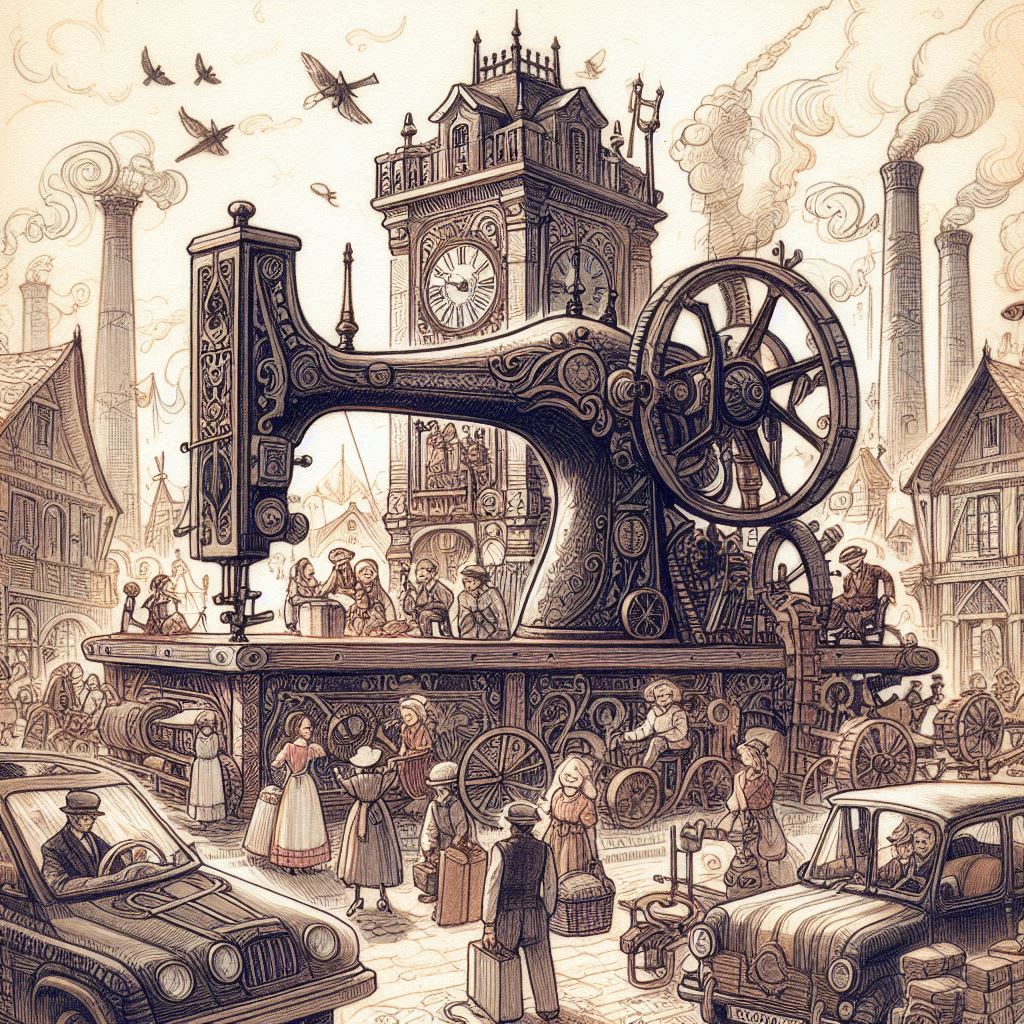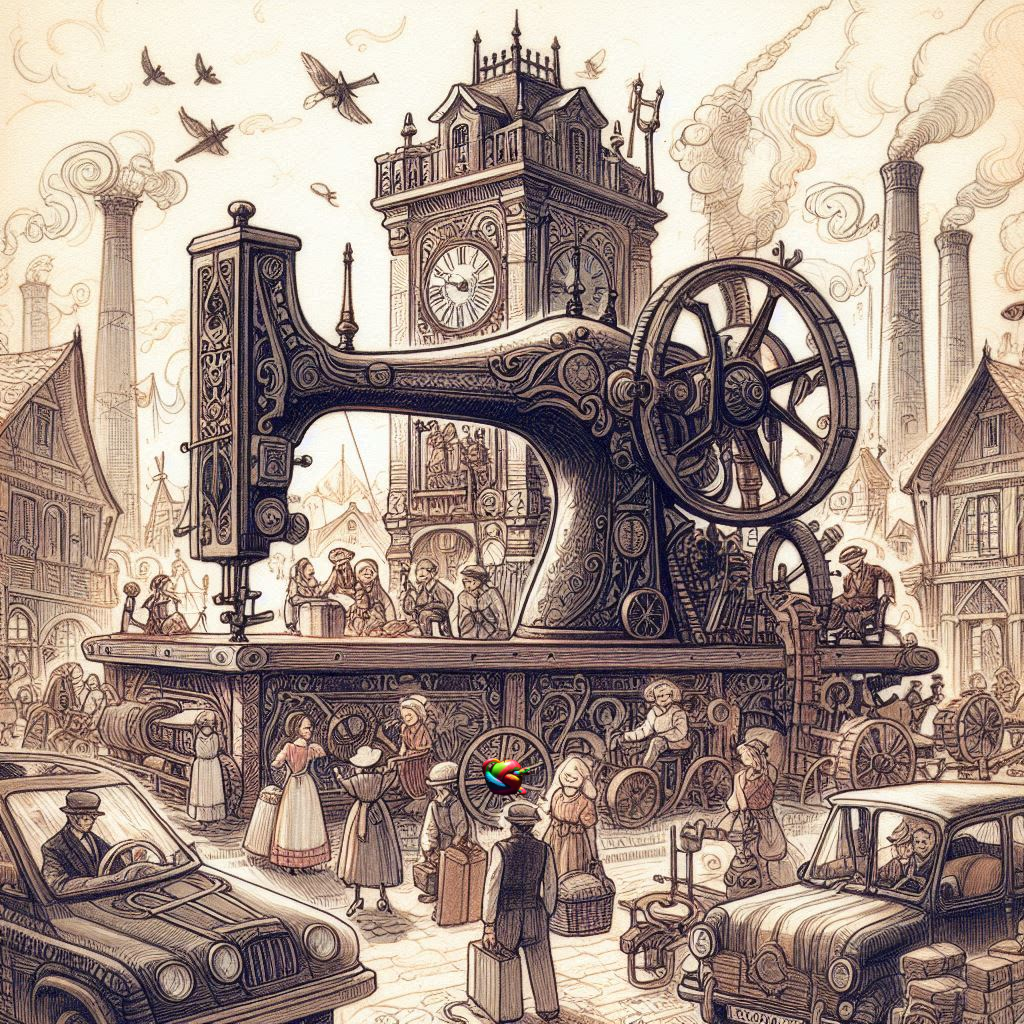
morA Stich in time
Last week in Atlas of non-landscape artists I said that a book had been purchased and subsequently delivered, after I had watched Sam Harris Still Hasn’t “Solved” Morality w/ @lanceindependent in which the book had been mentioned by Lance, with particular reference to Stephen Stich and Edouard Machery. I still haven’t found time to watch the entire stream, but have find time to read a number of essays or articles in Atlas of Moral Psychology.
I leave the Machery for later and focus on the Stich here.

Stephen Stich provides the start of the last Part 12 with Chapter 55 with ‘The Moral Domain’. What makes this book an atlas, beside the contributions of many writers, is the super-abstract as a subtitling Q&A to each essay. For this Chapter it is:
How Can We Specify the Boundaries of the Moral Domain?
We Can’t Because the Moral Domain Does Not Exist.
Which is exactly where I have ended up by other means.
This does not mean we do not attempt to world with or in or by or without/in-out/by-out ‘mores’. It does not mean morality is not something we do, or don’t. It does not mean the world with collapse with it, or lack of worldly idols (gods/god/karma). But the bones of it are not there.
As a follow up to reading this chapter, I found an older article from 2006 “Is Morality an Elegant Machine or a Kludge?” in which I was very happy to read a very similar position on what I call the grammarians among us (after Sextus Empiricus’ translators terminology). Here it is in reference to the extension of Chomskyan universal black box (claimed to be selected for in evolution) or Language Acqusition Device (LAD), as a model for what a generative grammar of morality might look like. These are grammarians in the sense that they have found the bones of language (grammar, recusions, complexity) and thus try to find the bones of bones. They seek to discover skeleton of the skeleton, or, more likely, just assume they are there somewhere (in the… —gap), when of course the bones are a fossil of living movement, as I put it. The skeleton is not the life. Bones are a kludging outcome of muscular activity isometrically working against the rock of the earth carried within. They do not generate the 'muscle' of our personalities and worlds, they provide leverage and relief.
I have always been suspicous of such derivative structuralisms. Especially in top-down contexts, so convenient for the ruling psychopath.
My intellectual journey to this similar position is via Stephen Jay Gould descriptions of evolution leading to increasing complexity and not 'progress' (apparent progress is a subset of a measure of complexity) without his non-overlaping magisteria fixes (ugh). And more latterly via Terrence Deacon’s position in The Symbolic Species (excellent take down of the LAD) with some further context provided by reading Deacon's Incomplete Nature and Nick Lane’s The Vital Question. This is topped off by reading various primatologists and anthropologists on our evolutionary social settings. (See initial essay covering all of this.) My framework is evolution. Evolution is not a structuralism (type 1 or 2) that a grammarian bias can appreciate natively.
So I ended up with a similar position (if inchoate) to Stich in moral philosophy a decade ago after asking “what is the ethical response to morality” , within a Gödelian incompleteness framing, among co-workers at a museum on cold quiet August afternoons, that, as Stich put it first, morality is a kludge. The skeleton of language or morality has no generating meta-structure. If it is a kludge there is no ‘moral domain’ there is no informing order out of which our moralities descend godlike, a deus ex machina. (Sorry would be emperors.) Nor ascend towards divinity in an immanent return out of the original design-maker’s will in an act of creation. (Sorry Pierre Teilhard de Chardin).
We do the kludge, and we survive doing so, by doing so.
Which is why we end up with with sup-optimal solutions which we self-idolise by hiding “it-all” in a fetish (mostly to protect the children ---the repression is censorship & not id-whipping, parentoid-political not pscyhological) (this is why it can end up that morality is un-ethical). Fetishes include gods/god/art/religion/morality each have their own contexts in which any particular kludging-style is pertinent.
They all come from the same urge, but the urge gives little to no structure at all. It is a learning opportunity. Grammarians want to teach but not learn. Grammarians are a type of kludge.
That all this is, or all these are, a kludge or two, explains why I could feel that morality could be so unethical at base. Which is why politically it has to be dressed-up by sleep-deprived parents in fetish-like costumes (god/karma) which hides that it disavows the credit/blame for it all. What skeletons do we keep in that cupboard of dress-ups?? It is a shock that there are none at all, but why do we hide that?
The features that are more likely to be retained or added might be thought of as biases or attractors in the transmission process, and over time the transmitted mental representations found in a population will tend to move in the direction of those attractors. (Stich 2006)
Also in last week’s post Atlas of non-landscape artists I mentioned I should urge myself to do some basic search in actual moral philosophy, and now feel a great deal of relief in doing so. Even if it is less than a dozen papers. The avoidance was due to the fact that I knew there were the biggests of thickets surrounding my goal and I knew not where to begin. At least I did not call them boring like Sam Harris does (he is a type 2.1 structuralist).
In particular is the sense that I do not have to do any scholarly-like work on this topic and I can remain free to poetically wander around the topic'a halo. Someone else is doing that heavy lifting. This is fantastic. My writing will remain academic to a degree as there are many resource to read and enjoy in digesting, but scholarly platforms is not my preferred avenue of approach to production. I wish to find language on country, fit for the self to world.
I have always been attracted to the longer road.
Gray, Kurt James, and Jesse Graham, eds. Atlas of Moral Psychology. New York: The Guilford Press, 2018.
Stephen Stich. “Is Morality an Elegant Machine or a Kludge?” Journal of Cognition and Culture 6, no. 1–2 (2006): 181–89. https://doi.org/10.1163/156853706776931349.
Stephen Stich. “The Moral Domain: How Can We Specify the Boundaries of the Moral Domain? We Can’t Because the Moral Domain Does Not Exist.” Chapter 55 of Atlas of Moral Psychology, 547–55. New York: The Guilford Press, 2018.
Gould, Stephen Jay.———. 1986. Ever since Darwin: Reflections in Natural History. Harmondsworth: Penguin.———. 1992. Life’s Grandeur: The Spread of Excellence from Plato to Darwin. Penguin.———. 1997. Dinosaur in a Haystack: Reflections in Natural History. London: Penguin.
Deacon, Terrence William.
———. 1997. The Symbolic Species: The Co-Evolution of Language and the Human Brain. London: Penguin.———. 2013. Incomplete Nature: How Mind Emerged from Matter. New York: W.W. Norton.Lane, Nick. 2016. The Vital Question: Why Is Life the Way It Is? London: Profile Books.
